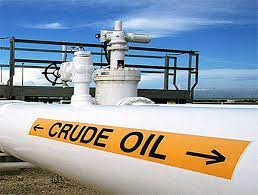Nigeria’s leading crude oil blends — Bonny Light, Brass River, and Qua Iboe — traded at $67.30 per barrel, maintaining a narrow premium over the international Brent benchmark, as the global oil market fixated on U.S.-China peace talks and broader geopolitical signals.
Brent futures dipped slightly to $66.04 on Monday, while U.S. West Texas Intermediate (WTI) eased by 4 cents to $64.05. However, both benchmarks held on to most of last week’s gains, supported by a surge in investor confidence over potential breakthroughs in U.S.-China trade negotiations held in London.
The renewed optimism has buoyed oil demand forecasts, with analysts interpreting the talks as a critical inflection point for global trade and economic stability.
“The oil market is responding less to immediate supply disruptions and more to macroeconomic signals, particularly around global trade,” said Kehinde Fatai, an energy economist at Lagos Business School. “If the U.S. and China mend trade relations, we could see sustained demand growth.”
In a domestic development hailed as a game changer for indigenous participation in Nigeria’s energy sector, Green Energy International Limited (GEIL) has completed the first crude shipment from the newly built Otakikpo Onshore Terminal in Rivers State.
According to GEIL, the Shell-chartered tanker lifted the first crude cargo from the Otakikpo field on Sunday, June 8, marking Nigeria’s first privately constructed and operated onshore crude export terminal in over five decades.
GEIL Chairman Prof. Anthony Adegbulugbe described the event as “a historic achievement that proves Nigerian companies can lead in midstream infrastructure.”
“This project succeeded through persistence, regulatory cooperation, and divine favor,” he said, lauding his team’s technical competence and the project’s potential to increase Nigeria’s export capacity and reduce midstream bottlenecks.
Meanwhile, the global oil market continues to navigate supply-demand uncertainties. In April, OPEC+ announced an accelerated rollback of voluntary production cuts totaling 2.2 million barrels per day, with eight member countries agreeing to add 410,000 barrels per month through July.
In another market-shaping development, the Dangote Refinery has ramped up its importation of U.S. crude, specifically WTI Midland, which now accounts for one-third of the refinery’s total crude intake for June and July 2025.
Vessel scheduling data indicates that Vitol Group, one of the world’s largest energy traders, is coordinating the bulk of these shipments. The refinery is projected to import 14 million barrels of U.S. crude in that two-month span.
